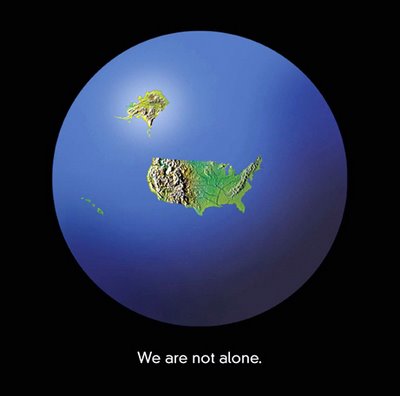What the Nat-Geo Survey really means ...
- 63% of young Americans can't find Iraq on a map.
- 20% of young Americans think Sudan is in Asia.
- 48% of young Americans believe the majority population in India is Muslim.
- 50% of young Americans can't find New York on a map.
- 33% couldn't pinpoint Louisiana on a map.
- 48% were unable to locate Mississippi.
To be fair to today's younger generation, this is not much different from the 1950s when a college-level survey quoted a Grad who had written: The Bible of the Mohammedans is called Kodak. Not only did he not know the name of the Muslim Book, or understand the subtlety of the fact that there are no Mohammedans, he was surprisingly unaware of the existence of Kodak ... a name in the 50's that hardly had a competitor of note.
Sound startling? Why? It's perfectly understandable. Under a system of Education (No, I am not being funny; That's what it is called.) that not just promotes rote learning, but makes it essential through Examinations and Grading based on memory-centred tests, this is just what you'll get. (Two USA classroom test questions suggested among lesson plans in a teachers' guide: When did USA gain independence? Who was the 17th President? In Pakistan, we don't fare much better: I have seen 'When was Iqbal born?' and 'Where was the Quaid born?' in textbooks and in tests. The second is a trick question, of course, since the correct answer is dependent upon the political party in power. And many of you, I am sure, can't recall where the Battle of Panipat was fought.)
When you get as old as I am, you enter the age rightfully known as anecdotage. Everything reminds you of a story or an event. So, here goes: Many years ago, when Shahnaz Wazir Ali was the Education Minister and the Chief Guest at a pioneering Education Technology Exhibition, I recall a 14-year-old student from that amazing institution, Karachi High School, before being whisked away by an embarrassed and angry organizer, addressing her with words to this effect (the quote is as accurate as I can recall - since the child's words continue to ring in my ears, including her emphases): "As one of the few educated Education Ministers we have had, maybe you can answer my question and even do something about it. I was taught and tested on when Babar was born. I asked my father. He had been taught and tested on this, too. I asked my grandfather. He, too, had gone through this. I then asked both whether ever in their combined age of 100-odd years they had found this information to be of any use. Or if anyone outside of school had ever asked them this. Or needed to know. "No!", they said. So, Madam, can we please take this out of our course and put in something useful instead?"
This is a problem with no easy answers. Which is exactly what makes it something that no one dares touch in this world of easy-answer seekers. The training for this attitude, too, starts at school, with that 10-page "Guide to World History: All the Facts You Need!" ... and its grown-up equivalent: World History for Dummies! Local Publishers refuse to handle my proposed Urdu Translation of the book unless I change the title from "Aalami Taareekh Baraaé Chootiaas!" - They say no one will buy it --- and, to my reasonable protests, give me this answer: "'Dummies' to Angrayzee mayñ hae, na. Üss say 'class' hee badal jaata hae!" Sam, please note! OK.
Back to the Examination thing. Let's face it. this is NOT something that can be tackled by one or two political parties in one or two terms (or, in our case, the Ruling Party, however long it prolongs its Term of Office). The practical aspects are overwheming and complex. Think of the chain and all the links that need changing. Man, if Education were a human being, we'd have been talking mercy-killing now! Are there possible solutions? Or are we doomed to live in this seemingly infinite loop? Think about it. Blog about it. (Please do send me links to your posts). I'll be posting my views, here, every now and then - so if it's of interest to you, do drop in again.








2 Comments:
oh maannnn, i wish i'd written about this.
people, if anyone needs any evidence of how dumb americans are, watch leno or fox news. the jaywalkers and the fox news anchors have roughly the same level of knowledge of the world beyond kansas.
And yes, why should i be learning about the mughals and not about the egyptians? who made that choice for me?
heheh, love the book ... i'll buy a copy
trivia: Shahnaz Wazir Ali is my khala
05 May, 2006 18:41
sam, i met your khala in lahore this afternoon.
06 May, 2006 19:42
Post a Comment
<< Home